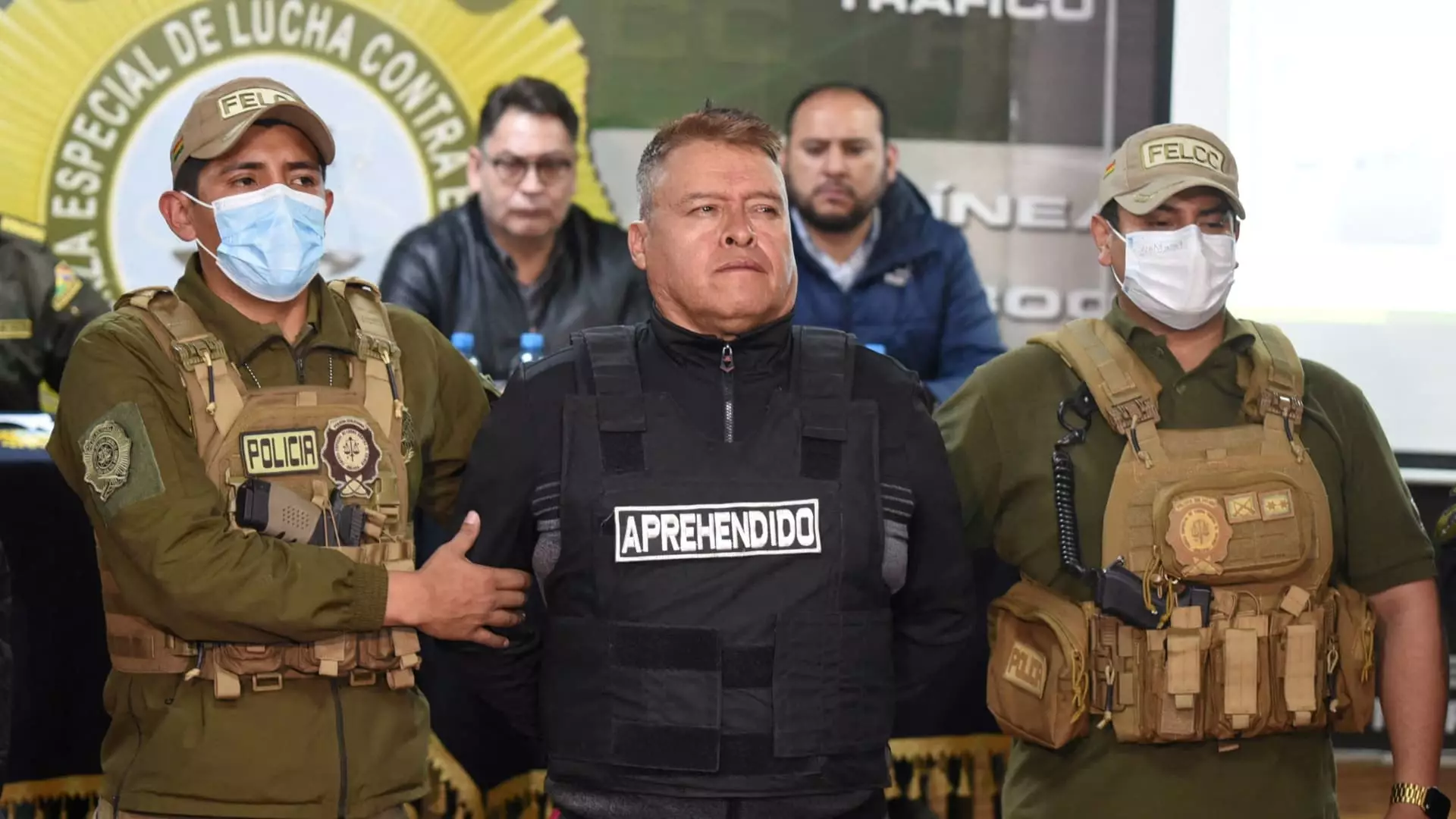Bolivia is facing turbulent times as political unrest reaches a critical point with an attempt to undermine the current government led by President Luis Arce. Recently, the situation escalated when Bolivian armed forces turned against the government, culminating in the dramatic arrest of General Juan Jose Zuniga, who is now accused of conspiring to overthrow the democratically elected government. This arrest marks a significant moment in Bolivia’s contemporary history, as the country grapples with deep-seated political grievances, military discontent, and societal divisions.
On a seemingly regular Wednesday, events unraveled rapidly as armored military vehicles and heavily armed soldiers advanced toward the Palacio Quemado, Bolivia’s presidential palace. This display of blatant force raised alarm across the nation, prompting President Arce to label the unrest as an “attempted coup d’état.” The gravity of the situation was underscored by Arce’s call for Bolivians to rally in defense of democracy, highlighting a profound concern that military might might supersede political sovereignty. Videos surfaced online, showing troops and tanks surrounding the central Plaza de Murillo, manifesting a palpable tension in the air.
Maria Nela Prada, a leading government official, voiced her outrage via social media, categorizing the military movements as a “rupture of constitutional order.” Such descriptions reflect a growing concern among citizens and leaders alike regarding the integrity of democracy within the nation. Mobilizing public sentiment against military incursions into governance, Prada’s remarks resonate with the historical context of Bolivia’s tumultuous relationship with its military, which has a long history of coups and political interference.
In response to the unfolding crisis, President Arce swiftly enacted a reshuffling of military leadership. New commanders were appointed to restore order and signal a staunch resistance against the coup attempt. The appointment of Jose Wilson Sanchez as military chief illustrates Arce’s urgent need to stabilize the armed forces. Observers noted the withdrawal of soldiers after the announcement of these changes, consequently allowing pro-government supporters to reclaim the streets.
General Zuniga’s motivations for the coup have become increasingly evident. Having publicly criticized the previous administration of Evo Morales, he positioned himself as an advocate for military-led reform. His declarations emphasized a perceived obligation to “recover” the nation from political ineptitude. Such narratives, steeped in nationalism and military rectitude, pose a significant challenge to the civilian government and further complicate an already fraught political landscape.
The attempted coup comes at a time when Bolivia is already grappling with severe economic challenges, including dwindling reserves of the U.S. dollar, climbing public debt, and diminishing natural gas production. As it struggles to recover from the economic booms and busts of the past decade, the political turmoil may exacerbate an already fragile situation. The International Monetary Fund’s projections of a meager 1.6% growth this year encapsulate the dire economic situation that could lead to increasing discontent among citizens.
Moreover, international reactions to the coup attempt have surfaced, portraying a collective condemnation of military intervention in politics. Statements from figures like Josep Borrell, the European Union’s chief diplomat, firmly rejected any efforts to disrupt Bolivian democracy. Similarly, words of solidarity from Spain’s Prime Minister Pedro Sanchez echo a broader sentiment throughout the global community, signaling a staunch support for democratic governance.
The geopolitical implications of Bolivia’s unrest cannot be understated. Reactions from neighboring countries range from vocal indignation to nuanced caution. Nations such as Venezuela and Cuba vocally denounced the military assertiveness, viewing it as a threat to regional stability, while others approach the unfolding situation with trepidation, cognizant of the historical context of military coups in South America.
As the dust settles from the immediate turmoil, Bolivia stands at a crossroads. Will the leadership successfully navigate through a restructured military hierarchy and public discontent, or will this chapter lead to deeper instability? The resolutions to these questions will potentially reshape not only Bolivia’s future but also influence regional dynamics in South America as a whole. In the meantime, citizens watch closely, hopeful that their voice will ultimately prevail in this struggle for democratic integrity.


Leave a Reply